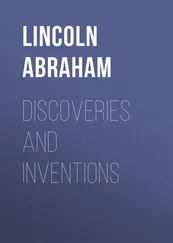Johann Beckmann - A History of Inventions, Discoveries, and Origins, Volume II (of 2)
Здесь есть возможность читать онлайн «Johann Beckmann - A History of Inventions, Discoveries, and Origins, Volume II (of 2)» — ознакомительный отрывок электронной книги совершенно бесплатно, а после прочтения отрывка купить полную версию. В некоторых случаях можно слушать аудио, скачать через торрент в формате fb2 и присутствует краткое содержание. Жанр: foreign_antique, foreign_prose, на английском языке. Описание произведения, (предисловие) а так же отзывы посетителей доступны на портале библиотеки ЛибКат.
- Название:A History of Inventions, Discoveries, and Origins, Volume II (of 2)
- Автор:
- Жанр:
- Год:неизвестен
- ISBN:нет данных
- Рейтинг книги:4 / 5. Голосов: 1
-
Избранное:Добавить в избранное
- Отзывы:
-
Ваша оценка:
- 80
- 1
- 2
- 3
- 4
- 5
A History of Inventions, Discoveries, and Origins, Volume II (of 2): краткое содержание, описание и аннотация
Предлагаем к чтению аннотацию, описание, краткое содержание или предисловие (зависит от того, что написал сам автор книги «A History of Inventions, Discoveries, and Origins, Volume II (of 2)»). Если вы не нашли необходимую информацию о книге — напишите в комментариях, мы постараемся отыскать её.
A History of Inventions, Discoveries, and Origins, Volume II (of 2) — читать онлайн ознакомительный отрывок
Ниже представлен текст книги, разбитый по страницам. Система сохранения места последней прочитанной страницы, позволяет с удобством читать онлайн бесплатно книгу «A History of Inventions, Discoveries, and Origins, Volume II (of 2)», без необходимости каждый раз заново искать на чём Вы остановились. Поставьте закладку, и сможете в любой момент перейти на страницу, на которой закончили чтение.
Интервал:
Закладка:
It appears that the Romans at first considered hair-soap as an ointment made from ashes; for we read in various passages of ancient authors, that the hair was dyed by means of ashes, or an ointment made of ashes and a certain kind of oil. It is however possible that they may have had such an ointment, which undoubtedly would be of a saponaceous nature, before they were acquainted with the German soap, or that they imitated the German pomade with different variations 239 239 Valer. Max. i. 5, p. 135: Capillos cinere rutilarunt. Ad rutilam speciem nigros flavescere crines, Unguento cineris prædixit Plinius auctor. Q. Serenus, De Medic. iv. 56. Serenus seems to allude to a passage of Pliny, xxiii. 2, p. 306, where he speaks of an ointment made from the burnt lees of vinegar and oleum lentiscinum. The same thing is mentioned in Dioscorides, v. 132, p. 379. Servius, Æn. iv. quotes the following words from Cato: “Mulieres nostræ cinere capillum ungitabant, ut rutilus esset crinis.” Alex. Trallianus, 1, 3, gives directions how to make an ointment for gray hair from soap and the ashes of the white flowers of the Verbascum. The Cinerarii, however, of Tertullian, lib. ii. ad uxor. 8, p. 641, seem to have been only hair-dressers, who were so called because they warmed their curling-irons among the hot ashes.
.
As soap is everywhere used for washing at present, a question arises what substitutes were employed before it was invented. Those with which I am acquainted I shall mention and endeavour to illustrate. They are all still used, though not in general; and they are all of a soapy nature, or at least have the same effects as soap; so that we may say the ancients used soap without knowing it.
Our soap is produced by a mixture of lixivious salts and tallow, by which means the latter becomes soluble in water. The greater part of the dirt on our linen and clothes consists of oily perspiration or grease, or dust which that grease attracts, and which either cannot be washed out, or, but very imperfectly, by water alone. But if warm water, to which lixivious salts have in any manner been added, be taken, and if dirty cloth be rubbed in it, the greasy dirt unites with the salts, becomes saponaceous, and is so far soluble in water that it may be washed out. There are also natural juices which are of a soapy quality, in the state in which we find them, and which can be employed in the stead of artificial soap. Of this kind is the gall of animals and the sap of many plants. The former being less strong in its effects on account of its slimy nature, is used at present particularly for coloured stuffs, the dye of which is apt to fade. As far as I know, however, it was not employed by the ancients 240 240 Pliny says that spots of the skin may be removed by ox-gall.
, but it is certain that in washing they used saponaceous plants.
In the remotest periods it appears that clothes were cleaned by being rubbed or stamped upon in water, without the addition of any substance whatever. We are told by Homer, that Nausicaa and her attendants washed their clothes by treading upon them with their feet in pits, into which they had collected water 241 241 Odyss. vi. 91.
. The epithet black, which the poet gives to the water, might induce one to conjecture that it had been mixed with ashes, which would convert it into a lye; but where were the ashes to be found? Had they brought them along with them, the bard, where he before enumerates everything that they carried with them, and even oil, would not have failed to mention them; and such a conjecture is rendered entirely groundless by his applying the same epithet to pure water, in other places, where nothing can be supposed to have coloured it 242 242 Iliad, ix. 14, and xvi. 4.
. Water, when it stands in deep pits, reflects so few rays of light, that in a poetical sense it may very properly be called black.
We find however mention made at later periods of ashes, and a lye of ashes employed for washing; but I think very seldom, and I do not know how old the use of them may be. According to Julius Pollux, konia , mentioned by Aristophanes and Plato, was a substance used for washing; and he says expressly, that we are to understand by it a lye of ashes. This I mention for the sake of those, who, like me, place little confidence in the terms of art given in dictionaries. With the above lye, oil- and wine-jars were cleaned 243 243 Geopon. vii. 6. – Plin. xiv. cap. 21. – Columella, xii. 50. 14.
; and it was employed also for washing the images of the gods 244 244 Arnobius, vii. p. 237.
. The method of strengthening the lye by means of unslaked lime was known, at any rate, in the time of Paulus Ægineta; but it appears that the Romans were not acquainted with the salt itself, which is procured by dissolving common wood-ashes in water: I mean, they did not understand the art of producing it in a dry solid form, or of boiling potashes.
On the other hand, that fixed lixivious salt, the mineral which nature presents in many of the southern countries, was long known and used in washing. This was the nitrum , or, as the people of Attica pronounced it, the litrum , of the ancients, as has already been remarked by others 245 245 The word λίτρον in Pollux ought not to have been translated sapo .
. It would however be worth the trouble to investigate the proofs still further. By examining them with more mineralogical and chemical knowledge than have hitherto been employed for that purpose, they might be further strengthened, and serve to illustrate many obscure passages. For my part, I have neither leisure nor room here to undertake such a task, though I have collected many observations relative to that subject. It is certain at any rate, that the ancients employed nitrum for washing, and it is evident from the testimony of various authors, that it was much used in the baths 246 246 Cicer. Ep. Fam. viii. 14. – Pollucis Onom. viii. 9, 39; x. 135. – Ovid. De Medicam. Faciei, ver. 73 et 85. – Phavorini Dictionar. p. 527. Gynesius calls clothes washed with nitrum , νιτρούμενα, nitro perfricata .
.
That the people of Egypt, in the time of Pliny, made mineral alkali also from the ashes of some plants, we have reason to conclude, because he says that it was necessary to put the Egyptian nitre into vessels well-corked, else it became liquid. Natural alkali is never liable to do so, unless it be very much burnt; and as no reason is assigned for its assuming that form, we may believe that the Egyptian alkali was the strongly burnt ashes of those plants which are still used in Egypt for making salt, and perhaps the same with which the Spaniards were made acquainted by the Arabians, and which they cultivate for making soda.
Strabo speaks of an alkaline water in Armenia, which was used by the scourers for washing clothes 247 247 Lib. xi. p. 801.
. Of this kind also must have been the lake Ascanius, which is mentioned by Aristotle 248 248 De Mirabil. Auscult. c. 54.
, Antigonus Carystius 249 249 Hist. Mirab. c. 162, p. 216.
, and Pliny 250 250 Lib. xxxi. 10, p. 564.
. It is worthy of remark, that the ancients made ointments of this mineral alkali and oil, but not hard soap, though by these means they approached nearer to the invention than the old Germans in their use of wood-ashes; for dry solid soap can be made with more ease from the mineral than the vegetable alkali; and when Hungarian, French, and German soap are of equal goodness, the last does more credit to the manufacturers because they cannot employ the mineral alkali. I shall here observe, that this alkali was used for washing by the Hebrews, and that it occurs in the sacred writings under the name of borith 251 251 J. D. Michaelis Commentationes, 4to, p. 151. I must mention also C. Schoettgenii Antiquitates Fulloniæ, Traj. 1727, 8vo. My readers will do me a pleasure if they compare the above work with this article. No one will accuse me of vanity when I pretend to understand the theory of washing better than the learned Schöttgen; but if I have explained the passages which he quotes in a more satisfactory manner, and turned them to more advantage, I must ascribe this superiority to my knowledge of that art. I shall here take occasion to remark, that there is no subject, however trifling, which may not be rendered useful, or at least agreeable, by being treated in a scientific manner; and to turn such into ridicule, instead of displaying wit, would betray a want of judgment.
.
Интервал:
Закладка:
Похожие книги на «A History of Inventions, Discoveries, and Origins, Volume II (of 2)»
Представляем Вашему вниманию похожие книги на «A History of Inventions, Discoveries, and Origins, Volume II (of 2)» списком для выбора. Мы отобрали схожую по названию и смыслу литературу в надежде предоставить читателям больше вариантов отыскать новые, интересные, ещё непрочитанные произведения.
Обсуждение, отзывы о книге «A History of Inventions, Discoveries, and Origins, Volume II (of 2)» и просто собственные мнения читателей. Оставьте ваши комментарии, напишите, что Вы думаете о произведении, его смысле или главных героях. Укажите что конкретно понравилось, а что нет, и почему Вы так считаете.












